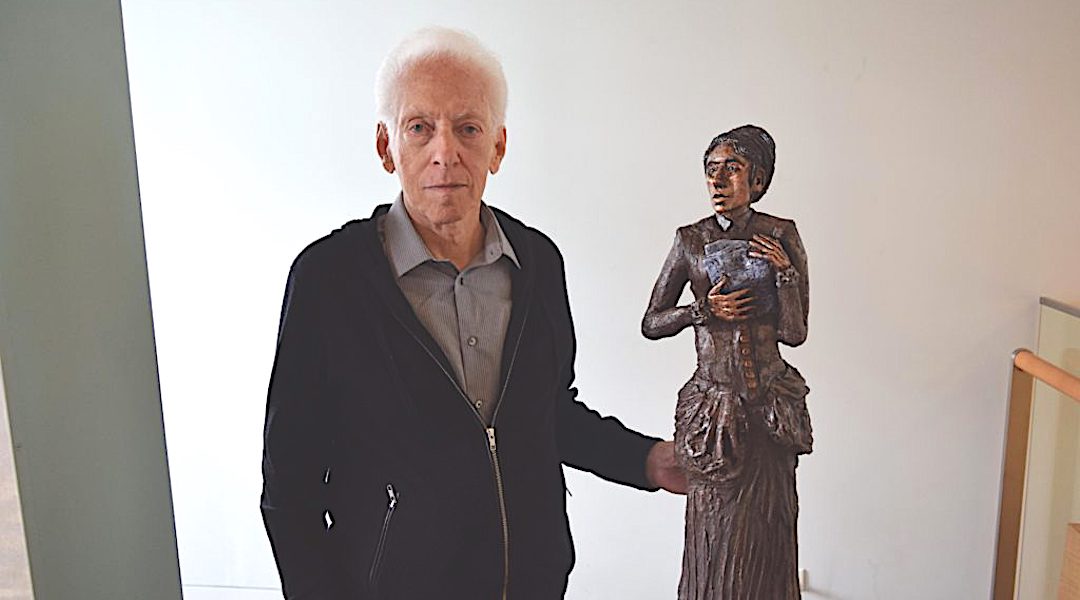Phillip Ratner, sculptor whose work tells immigrants’ stories at NYC landmarks, dies at 86
The Washington-area artist’s bronzes adorn the museums at Ellis Island and the Statue of Liberty

Phillip Ratner with his sculpture of Emma Lazarus in 2017. (Courtesy of the National Museum of American Jewish History)
(JTA) — Washington-area artist Phillip Ratner, whose bronze sculptures of immigrants and other historical figures are fixtures at exhibits at the Statue of Liberty and Ellis Island, died Nov. 9 at his home in Bethesda, Maryland. He was 86.
Ahead of Lady Liberty’s centennial in the 1980s, the National Park Service commissioned Ratner to create statues representing immigrants who entered the country through Ellis Island between 1892 and 1954 as well as figures central to the history of the Statue of Liberty, including the Jewish poet Emma Lazarus.
Ratner had to raise the funds for the sculptures himself, a task he gladly took on.
“Telling the story of my grandparents coming to this country and making it their home — a story that connects many Americans — is a passion of mine,” Ratner said in 2017, when he donated models for 10 of those works to the National Museum of American Jewish History in Philadelphia.
Ratner and his cousin Dennis Ratner were also the founders, in 1985, of the Israel Bible Museum in Safed, Israel, a collection of sculpture, painting and graphics related to the Bible. It later relocated to Beersheva.
Born in Washington, Ratner studied art at the Pratt Institute in New York and American University in Washington, and taught art — including at the Charles E. Smith Jewish Day School in Rockville, Maryland — before devoting himself full-time to his artwork.
His survivors include his wife, the former Ellen Miles, and four children from his first marriage to Miriam Levine: Hal Ratner of Chicago, Marni Ratner of Olney, Maryland and Sari Ratner Judge and Jennifer Ratner-Rosenhagen, both of Madison, Wisconsin, and nine grandchildren.
This article originally appeared on JTA.org.













